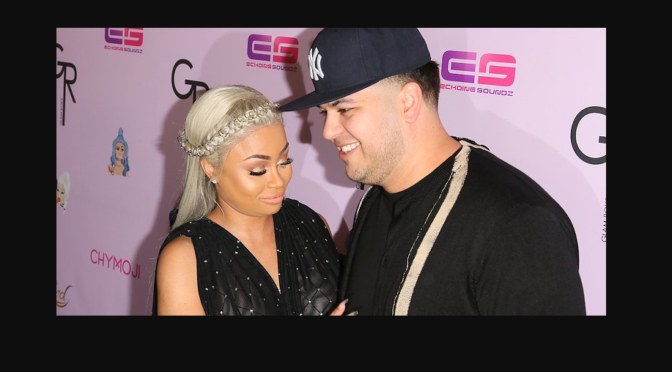Whether or not you’re attuned to the ongoing dramas of the Kardashian krew, you’ve likely heard by now that Rob Kardashian (brother to Kim; sock entrepreneur) spent much of his Wednesday posting a series of nude photos, presumably sent to him privately, by his ex-fiancée and mother of his child, Blac Chyna (formerly Angela Renee White; model; makeup entrepreneur). Because the social media spree took place after he’d discovered that Chyna had apparently cheated on him, Kardashian’s act has been roundly deemed by celebrity gossip mongers like TMZ as “revenge.”
Indeed, celebrity attorney Lisa Bloom (daughter of famed civil rights lawyer Gloria Allred) confirmed this reading of the events when she announced Friday morning that she’d be representing Chyna in court as she pursues a restraining order against her raging ex. Bloom — who helped actress Mischa Barton get a restraining order against an ex-boyfriend who was threatening to sell her sex tape — told The New York Daily News that what Kardashian did constituted “revenge porn,” stating: “Revenge porn is illegal in CA and it certainly appears to me that Rob has violated this criminal law.”
California passed its revenge porn law in 2013. Today, more than half of U.S. states have similar laws. The very language with which we use to talk about “revenge porn” reveals a lot about how we approach the issue, casting it in terms of personal drama rather than as a violation of personhood. Iowa-based Drake University law professor Shontavia Johnson says the popular phrase is misleading. “Revenge porn is really about privacy, about protecting our personal information and having a right to do that,” she says. “We use the term ‘revenge porn,’ which makes it sound like it’s about the perpetrator, but it’s really about the privacy of the individual victim, and whether or not an unsuspecting victim can in some way stop this picture or video from being placed online.”
Read Full – https://www.good.is/articles/rob-kardashian-blac-chyna-drama-twitter-instagram-revenge-porn

